Assam Heritage: Art, Architecture, and Traditions
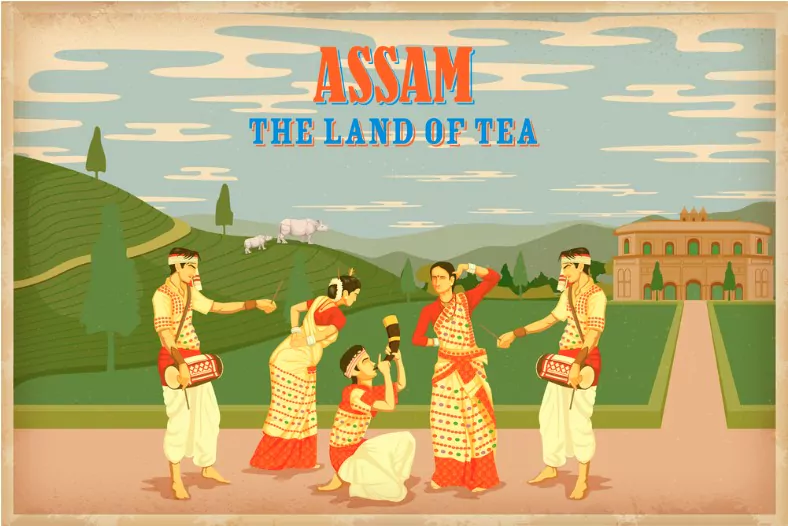
When you think about India’s rich cultural tapestry, the breathtaking Assam heritage can’t be overlooked. With its vibrant traditions, lush landscapes, and history dating back millennia, Assam is an unexplored gem waiting to be discovered. This article will take you on a journey through the entrancing Assam heritage.
- The Gateway to the North-East
- Historical Background: Where It All Began
- The Temples: Spiritual Relics of Assam Heritage
- Ethnic Diversity: The Tapestry of Cultures
- Assamese Cuisine: A Platter of Delights
- Natural Bounty: A Slice of Paradise
- Traditional Crafts: A Craftsmanship Legacy
- The Tea Gardens: An Aromatic Assam Heritage
- The Majuli Island: A Cultural Cradle
- Languages and Literature: Words that Echo through Time
- Festivals: Celebrating the Spirit of Assam Heritage
- Modernity and Preservation
- Wrapping Up
1 The Gateway to the North-East
Assam is often referred to as the gateway to the North-East of India. Nestled between Bhutan and Bangladesh, this region boasts many historical sites, diverse cultures, and stunning natural beauty. The Assam heritage is a sublime blend of various cultures that have intermingled over centuries. It is characterised by ancient temples, majestic river valleys, and vibrant festivals, all contributing to the distinct Assam heritage.
2 Historical Background: Where It All Began
The history of Assam is rich and multifaceted. From the mythological era of the Mahabharata to the medieval times of the mighty Ahoms, the essence of Assam’s heritage is deeply rooted. The Kamarupa Kingdom, which existed between the 4th and 12th centuries, is one of the earliest historical dynasties. The Ahom Dynasty, which ruled Assam for nearly 600 years, played a pivotal role in shaping Assam’s heritage, as it was during this period that many of the iconic monuments and temples were built.
3 The Temples: Spiritual Relics of Assam Heritage
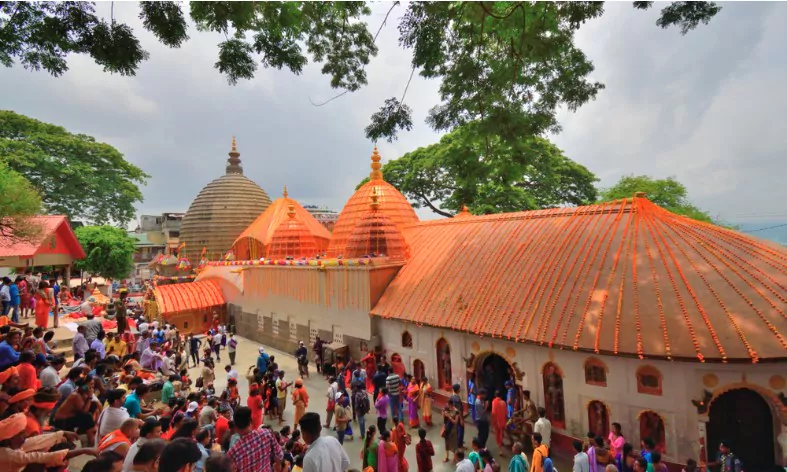
One of the most prominent features of Assam’s heritage is its ancient temples. The Kamakhya Temple, perched atop the Nilachal Hills in Guwahati, is one of the most celebrated shrines. It is a significant pilgrimage site and epitomises the richness of Assam’s heritage. Another notable temple is the Umananda Temple, situated on an island in the Brahmaputra River. These temples are not just places of worship but are also architectural marvels that showcase the intricacy of ancient Assamese design.
4 Ethnic Diversity: The Tapestry of Cultures
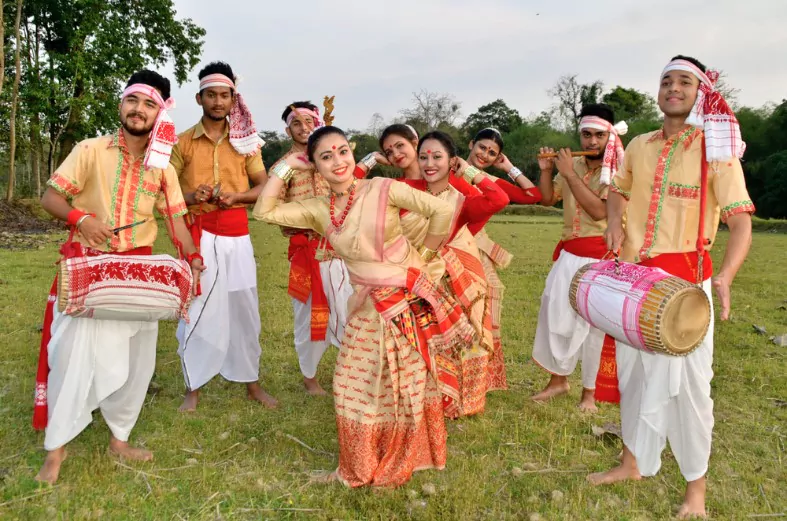
Assam is home to various ethnic groups, each with its unique traditions and customs. The Assamese, Bodo, Mishing, Karbi, and many others contribute to the cultural mosaic of Assam’s heritage. Traditional Assamese silk, particularly Muga and Pat silk, is renowned worldwide. The Bihu dance, which celebrates the Assamese New Year, is an ebullient display of the Assam heritage. The ethnic diversity is a testament to the harmony and rich cultural assimilation that Assam’s heritage embodies.
5 Assamese Cuisine: A Platter of Delights
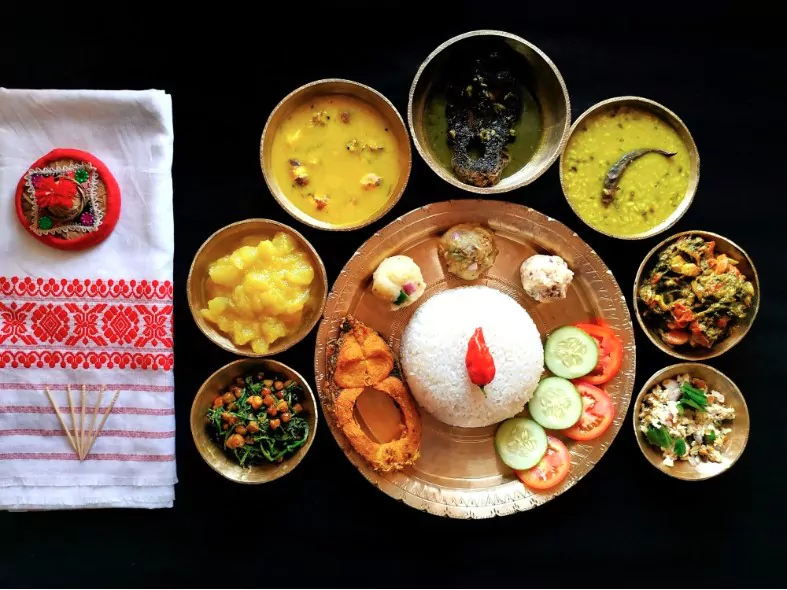
The culinary landscape of Assam is as diverse as its culture. Using rice, freshwater fish, and various herbs and spices characterises traditional Assamese cuisine. The simplicity and earthy flavours of Assamese cuisine reflect the agrarian roots of Assam’s heritage. The conventional ‘Assamese Thali’, with its plethora of dishes, provides an authentic taste of Assam heritage.
6 Natural Bounty: A Slice of Paradise
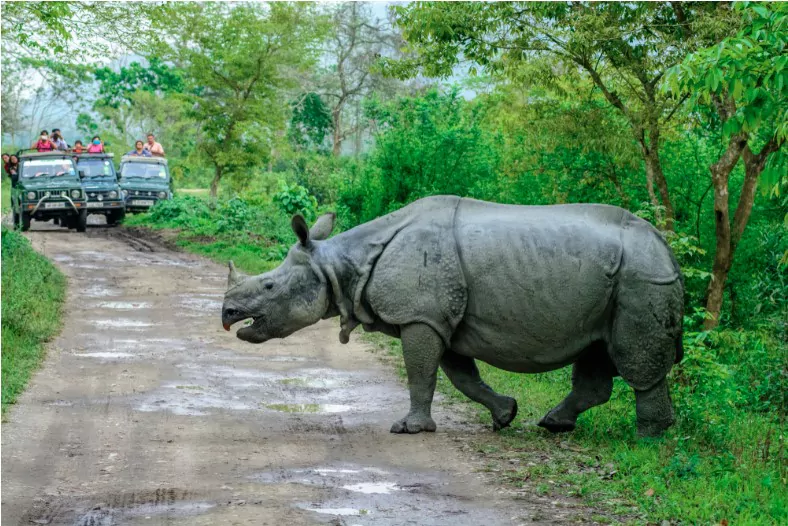
Assam is not just about culture and history; it also boasts stunning natural beauty. The UNESCO World Heritage Site, Kaziranga National Park, is a crown jewel in the Assam heritage. Home to the one-horned rhinoceros, this park is a biodiversity hotspot. The Brahmaputra River, one of the mightiest rivers in the world, flows through Assam, contributing significantly to the Assam heritage by supporting agriculture and providing natural beauty.
7 Traditional Crafts: A Craftsmanship Legacy
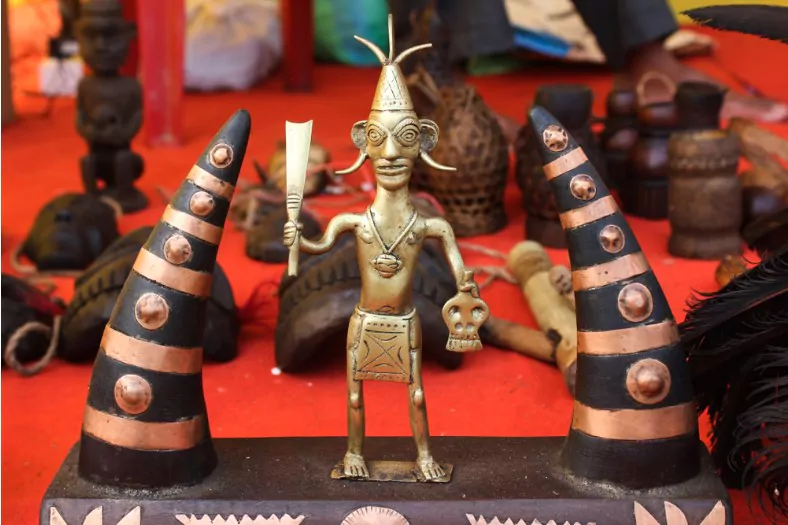
Handicrafts are an essential aspect of Assam’s heritage. The age-old weaving tradition is still prevalent, especially among the tribal communities. Assamese silk, as mentioned earlier, is renowned, but it’s not just a remarkable material; the art of weaving intricate designs is also commendable. The ‘Gamosa’, a traditional hand-woven cloth, holds particular importance in Assamese culture. Bamboo and cane crafts are other noteworthy aspects of Assam’s heritage, reflecting the ingenuity and skill of Assamese craftsmen.
8 The Tea Gardens: An Aromatic Assam Heritage
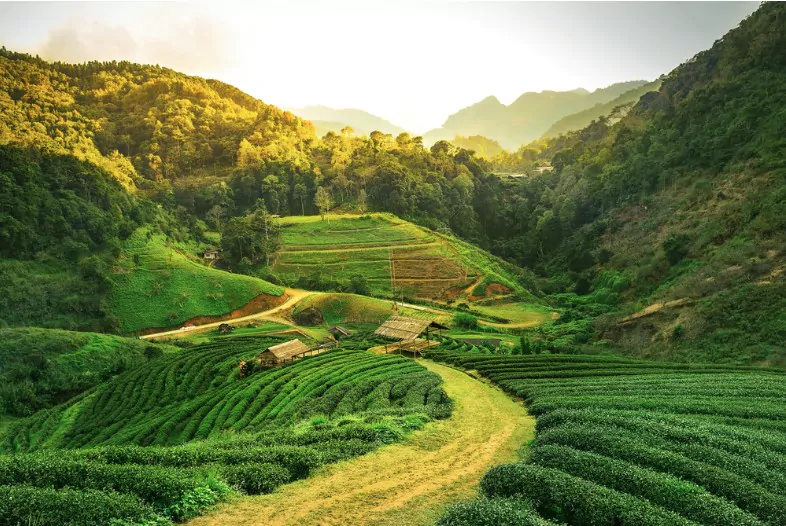
No discussion of Assam’s heritage would be complete without mentioning its world-famous tea gardens. Assam is one of the largest tea-producing regions in the world, and its tea is cherished for its robust flavour. The tea gardens themselves, with their sprawling estates and colonial-era bungalows, are a part of the colonial legacy intertwined with Assam’s heritage. The Assam Tea Festival is an annual celebration of this aromatic heritage.
9 The Majuli Island: A Cultural Cradle

Majuli, one of the world’s largest river islands, is an essential part of Assam’s heritage. Situated in the Brahmaputra River, Majuli is a hub of Assamese neo-Vaishnavite culture. The numerous Satras or monastic centres spread across the island have been preserving the cultural and spiritual aspects of Assam’s heritage for centuries. The island’s unique ecosystem, coupled with its vibrant culture, makes it a must-visit.
10 Languages and Literature: Words that Echo through Time
Assamese language and literature hold a significant place in Assam’s heritage. The language, rooted in Sanskrit, has evolved over time and assimilated influences from neighbouring regions. The literary history, enriched by luminaries such as Laxminath Bezbaroa and Jyoti Prasad Agarwala, resonates with the Assamese ethos. The Borgeets, devotional songs composed by Srimanta Sankardeva, are an intrinsic part of Assam’s heritage.
11 Festivals: Celebrating the Spirit of Assam Heritage
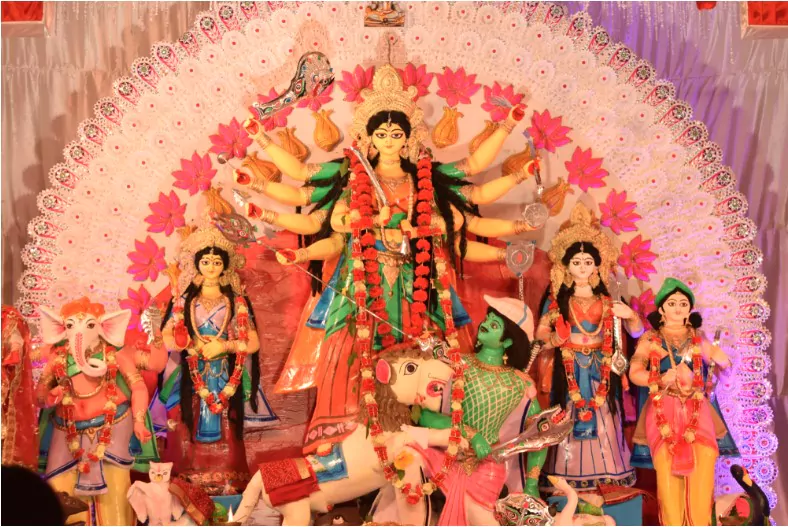
Assam is a land of festivals, with Bihu being the most prominent. The three Bihu festivals, Rongali, Kongali, and Bhogali, are celebrated at different times of the year and are synonymous with Assam heritage. Other notable festivals include Durga Puja, Ambubachi Mela, and the Majuli Festival. These festivals are a testament to the community bonds and joyous nature that is inherent in Assam’s heritage.
12 Modernity and Preservation
As modernity sweeps across the globe, it becomes imperative to preserve the Assam heritage. The government, various organisations, and the people of Assam are working together to keep their legacy alive. Whether it’s through cultural festivals, museums, or reviving ancient art forms, efforts are continuously being made.
13 Wrapping Up
The Assam heritage, with its rich historical background, diverse cultures, breathtaking landscapes, and deep-rooted traditions, is truly a treasure trove waiting to be discovered. It’s a land where the old and the new blend seamlessly. Whether you are a history buff, a nature lover, or someone looking for spiritual awakening, the Assam heritage has something to offer for everyone. So, pack your bags and set out on a journey to explore the enchanting and captivating Assam heritage. With every step, you will find a piece of history, a touch of culture, and a land that embraces you with open arms.
Community Q&A
About This Article
This article has been viewed 438 times.



